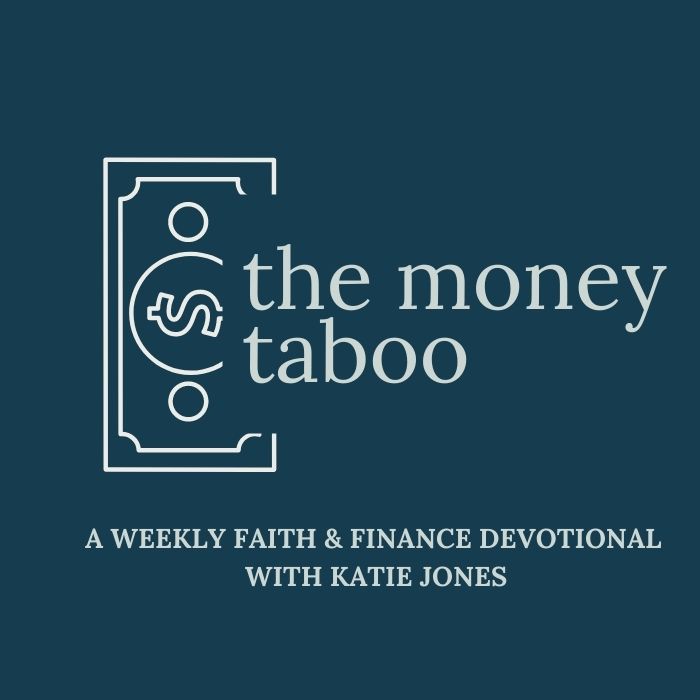Parables That Mention Money
A parable is a tale about a simple, common subject to illustrate a deeper, valuable moral lesson. Jesus was known to impart wisdom through the telling of parables during his ministry on earth. Today, thousands of years later, you and I get to enjoy going through and reading the parables that Jesus spoke to his followers and to anyone who would listen.
I can imagine though that people must have been very confused and probably a bit frustrated because Jesus often responded to questions with parables instead of giving a straight answer. Many people in the time of Jesus were uneducated commoners, who probably would not be able to understand a lot of what the Pharisees taught. Parables were essentially stories that for the most part, many people could relate to and understand.
Take for example the Parable of the Lost Sheep in Matthew 18:10-14. This story would resonate with not only the shepherds (who were almost always not educated), but many townspeople would also understand the relationship between the shepherd and God.
This is why parables can be so powerful. Now, thousands of years later, we read these same stories that Jesus spoke and can learn similar lessons. While some of the elements may be lost over time, the moral lessons that Jesus was trying to illustrate are not.
During Jesus’ ministry, he shared 39 parables. Something that always fascinated me is that many of the parables mention money. There are tons of references to money throughout the Bible. In fact, there are roughly 2,300 Bible verses mentioning money.
Similar to the example of the Parable of the Lost Sheep for those during the time of Jesus, money is something that we can all relate to in some way, shape, or form. All of us across all generations and countries use money. I’m sure that Jesus knew that this topic of money would be relevant to practically every person, everywhere, across all of time.
In this article, I’ll share a list of the parables that mention money.
How Many Parables Mention Money?
13 of Jesus’ 39 parables are about money.
Jesus shared 39 parables during his ministry on earth. When Googling this answer, many articles throw out the statistic that 11 of the 39 parables were about money. However, as I was writing this article, I noticed that no one had collected a list of the parables that mention money.
So I went on my own hunt through every single one of Jesus’ parables to pull out each one that mentioned money. In my own search, I counted 13 parables that used money to teach a greater lesson (there were even parables that had a slight mention of money, though did not use money as the base of the lesson).
The two parables that might be left off the lists of those who count 11 may be the Parable of the Hidden Treasure and the Pearl of Great Price. The funny thing is, that every article I came across that used that statistic, “11 of 39,” did not give a list of which parables they were referring to. Either way, in this article, I have created a list of the parables that mention money.

What Are These Parables Teaching?
Even though there are so many parables that mention money, I don’t believe Jesus’ first inclination was for us to learn to manage our money. While we most certainly can infer that money management is extremely important in the eyes of God, Jesus’ core mission and purpose was to teach the good news about the kingdom of God.
You will notice that many of these parables that mention money begin with the phrase, “the kingdom of heaven is like…” So while these parables mention money, they are not about money. They are about the kingdom!
Jesus used money to illustrate a different topic than money (Clear Creek Resources). This is what makes parables so valuable. They can be used to express and illustrate many different lessons within one story.
I’m sure that as Jesus shared these stories, he knew that people across all generations would desperately need wisdom when it cames to their personal finances. The same is true for us today and that is why He shared so many during His time on earth.
Parables That Mention Money
- Hidden Treasure – Matthew 13:44
- Pearl of Great Price – Matthew 13:45-46
- The Unforgiving Servant – Matthew 18:23–35
- Laborers in the Vineyard – Matthew 20:1-16
- Ten Talents or Gold Coins – Matthew 25:14-30 and Luke 19:12-27
- The Rich Fool – Luke 12:13-21
- The Lost Coin – Luke 15:8–9
- The Rich Man and Lazarus – Luke 16:19–31
- The Pharisee and the Tax Collector- Luke 18:10–14
- The Two Debtors – Luke 7:41–43
- Counting the Cost – Luke 14:28-33
- The Prodigal Son – Luke 15:11-32
- The Shrewd Manager or Unjust Steward – Luke 16:1-13
Hidden Treasure – Matthew 13:44
“The kingdom of heaven is like treasure hidden in a field. When a man found it, he hid it again, and then in his joy went and sold all he had and bought that field.”
Pearl of Great Price – Matthew 13:45-46
“Again, the kingdom of heaven is like a merchant looking for fine pearls. When he found one of great value, he went away and sold everything he had and bought it.
The Unforgiving Debtor – Matthew 18:23-35
“Therefore, the kingdom of heaven is like a king who wanted to settle accounts with his servants. As he began the settlement, a man who owed him ten thousand bags of gold was brought to him. Since he was not able to pay, the master ordered that he and his wife and his children and all that he had be sold to repay the debt.
“At this the servant fell on his knees before him. ‘Be patient with me,’ he begged, ‘and I will pay back everything.’ The servant’s master took pity on him, canceled the debt and let him go.
“But when that servant went out, he found one of his fellow servants who owed him a hundred silver coins. He grabbed him and began to choke him. ‘Pay back what you owe me!’ he demanded.
“His fellow servant fell to his knees and begged him, ‘Be patient with me, and I will pay it back.’
“But he refused. Instead, he went off and had the man thrown into prison until he could pay the debt. When the other servants saw what had happened, they were outraged and went and told their master everything that had happened.
“Then the master called the servant in. ‘You wicked servant,’ he said, ‘I canceled all that debt of yours because you begged me to. Shouldn’t you have had mercy on your fellow servant just as I had on you?’ In anger his master handed him over to the jailers to be tortured, until he should pay back all he owed.
“This is how my heavenly Father will treat each of you unless you forgive your brother or sister from your heart.”
Read More > Lessons From the Parable of the Unforgiving Debtor
Laborers in the Vineyard – Matthew 20:1-16
“For the kingdom of heaven is like a landowner who went out early in the morning to hire workers for his vineyard. He agreed to pay them a denarius[a] for the day and sent them into his vineyard.
“About nine in the morning he went out and saw others standing in the marketplace doing nothing. He told them, ‘You also go and work in my vineyard, and I will pay you whatever is right.’ So they went.
“He went out again about noon and about three in the afternoon and did the same thing. About five in the afternoon he went out and found still others standing around. He asked them, ‘Why have you been standing here all day long doing nothing?’
“‘Because no one has hired us,’ they answered.
“He said to them, ‘You also go and work in my vineyard.’
“When evening came, the owner of the vineyard said to his foreman, ‘Call the workers and pay them their wages, beginning with the last ones hired and going on to the first.’
“The workers who were hired about five in the afternoon came and each received a denarius. So when those came who were hired first, they expected to receive more. But each one of them also received a denarius. When they received it, they began to grumble against the landowner. ‘These who were hired last worked only one hour,’ they said, ‘and you have made them equal to us who have borne the burden of the work and the heat of the day.’
“But he answered one of them, ‘I am not being unfair to you, friend. Didn’t you agree to work for a denarius? Take your pay and go. I want to give the one who was hired last the same as I gave you. Don’t I have the right to do what I want with my own money? Or are you envious because I am generous?’
“So the last will be first, and the first will be last.”
Ten Talents or Gold Coins (also known as The Bags of Gold) – Matthew 25:14-30
“Again, it will be like a man going on a journey, who called his servants and entrusted his wealth to them. To one he gave five bags of gold, to another two bags, and to another one bag, each according to his ability. Then he went on his journey. The man who had received five bags of gold went at once and put his money to work and gained five bags more. So also, the one with two bags of gold gained two more. But the man who had received one bag went off, dug a hole in the ground and hid his master’s money.
“After a long time the master of those servants returned and settled accounts with them. The man who had received five bags of gold brought the other five. ‘Master,’ he said, ‘you entrusted me with five bags of gold. See, I have gained five more.’
“His master replied, ‘Well done, good and faithful servant! You have been faithful with a few things; I will put you in charge of many things. Come and share your master’s happiness!’
“The man with two bags of gold also came. ‘Master,’ he said, ‘you entrusted me with two bags of gold; see, I have gained two more.’
“His master replied, ‘Well done, good and faithful servant! You have been faithful with a few things; I will put you in charge of many things. Come and share your master’s happiness!’
“Then the man who had received one bag of gold came. ‘Master,’ he said, ‘I knew that you are a hard man, harvesting where you have not sown and gathering where you have not scattered seed. So I was afraid and went out and hid your gold in the ground. See, here is what belongs to you.’
“His master replied, ‘You wicked, lazy servant! So you knew that I harvest where I have not sown and gather where I have not scattered seed? Well then, you should have put my money on deposit with the bankers, so that when I returned I would have received it back with interest.
“‘So take the bag of gold from him and give it to the one who has ten bags. For whoever has will be given more, and they will have an abundance. Whoever does not have, even what they have will be taken from them. And throw that worthless servant outside, into the darkness, where there will be weeping and gnashing of teeth.’

The Rich Fool – Luke 12:13-21
Someone in the crowd said to him, “Teacher, tell my brother to divide the inheritance with me.”
Jesus replied, “Man, who appointed me a judge or an arbiter between you?” Then he said to them, “Watch out! Be on your guard against all kinds of greed; life does not consist in an abundance of possessions.”
And he told them this parable: “The ground of a certain rich man yielded an abundant harvest. He thought to himself, ‘What shall I do? I have no place to store my crops.’
“Then he said, ‘This is what I’ll do. I will tear down my barns and build bigger ones, and there I will store my surplus grain. And I’ll say to myself, “You have plenty of grain laid up for many years. Take life easy; eat, drink and be merry.”’
“But God said to him, ‘You fool! This very night your life will be demanded from you. Then who will get what you have prepared for yourself?’
“This is how it will be with whoever stores up things for themselves but is not rich toward God.”
Learn why the rich man was considered a fool
The Lost Coin – Luke 15:8-10
“Or suppose a woman has ten silver coins and loses one. Doesn’t she light a lamp, sweep the house and search carefully until she finds it? And when she finds it, she calls her friends and neighbors together and says, ‘Rejoice with me; I have found my lost coin.’ In the same way, I tell you, there is rejoicing in the presence of the angels of God over one sinner who repents.”
The Rich Man and Lazarus – Luke 16:19-31
“There was a rich man who was dressed in purple and fine linen and lived in luxury every day. At his gate was laid a beggar named Lazarus, covered with sores and longing to eat what fell from the rich man’s table. Even the dogs came and licked his sores.
“The time came when the beggar died and the angels carried him to Abraham’s side. The rich man also died and was buried. In Hades, where he was in torment, he looked up and saw Abraham far away, with Lazarus by his side. So he called to him, ‘Father Abraham, have pity on me and send Lazarus to dip the tip of his finger in water and cool my tongue, because I am in agony in this fire.’
“But Abraham replied, ‘Son, remember that in your lifetime you received your good things, while Lazarus received bad things, but now he is comforted here and you are in agony. And besides all this, between us and you a great chasm has been set in place, so that those who want to go from here to you cannot, nor can anyone cross over from there to us.’
“He answered, ‘Then I beg you, father, send Lazarus to my family, for I have five brothers. Let him warn them, so that they will not also come to this place of torment.’
“Abraham replied, ‘They have Moses and the Prophets; let them listen to them.’
“‘No, father Abraham,’ he said, ‘but if someone from the dead goes to them, they will repent.’
“He said to him, ‘If they do not listen to Moses and the Prophets, they will not be convinced even if someone rises from the dead.’”
The Pharisee and The Tax Collector – Luke 18:9-14
To some who were confident of their own righteousness and looked down on everyone else, Jesus told this parable: “Two men went up to the temple to pray, one a Pharisee and the other a tax collector. The Pharisee stood by himself and prayed: ‘God, I thank you that I am not like other people—robbers, evildoers, adulterers—or even like this tax collector. I fast twice a week and give a tenth of all I get.’
“But the tax collector stood at a distance. He would not even look up to heaven, but beat his breast and said, ‘God, have mercy on me, a sinner.’
“I tell you that this man, rather than the other, went home justified before God. For all those who exalt themselves will be humbled, and those who humble themselves will be exalted.”
The Two Debtors – Luke 7:40- 50
40 And Jesus responded and said to him, “Simon, I have something to say to you.” And he [a]replied, “Say it, Teacher.” 41 “A moneylender had two debtors: the one owed five hundred [b]denarii, and the other, fifty. 42 When they were unable to repay, he canceled the debts of both. So which of them will love him more?” 43 Simon answered and said, “I assume the one for whom he canceled the greater debt.” And He said to him, “You have judged correctly.” 44 And turning toward the woman, He said to Simon, “Do you see this woman? I entered your house; you gave Me no water for My feet, but she has wet My feet with her tears and wiped them with her hair. 45 You [c]gave Me no kiss; but she has not stopped kissing My feet since the time I came in. 46 You did not [d]anoint My head with oil, but she anointed My feet with perfume. 47 For this reason I say to you, her sins, which are many, have been forgiven, for she loved much; but the one who is forgiven little, loves little.” 48 And He said to her, “Your sins have been forgiven.” 49 And then those who were reclining at the table with Him began saying [e]to themselves, “Who is this man who even forgives sins?” 50 And He said to the woman, “Your faith has saved you; go in peace.”
Counting the Cost – Luke 14:28-33
28 “Suppose one of you wants to build a tower. Won’t you first sit down and estimate the cost to see if you have enough money to complete it? 29 For if you lay the foundation and are not able to finish it, everyone who sees it will ridicule you, 30 saying, ‘This person began to build and wasn’t able to finish.’
31 “Or suppose a king is about to go to war against another king. Won’t he first sit down and consider whether he is able with ten thousand men to oppose the one coming against him with twenty thousand? 32 If he is not able, he will send a delegation while the other is still a long way off and will ask for terms of peace. 33 In the same way, those of you who do not give up everything you have cannot be my disciples.
The Prodigal Son – Luke 15:11-32
11 Jesus continued: “There was a man who had two sons. 12 The younger one said to his father, ‘Father, give me my share of the estate.’ So he divided his property between them.
13 “Not long after that, the younger son got together all he had, set off for a distant country and there squandered his wealth in wild living. 14 After he had spent everything, there was a severe famine in that whole country, and he began to be in need. 15 So he went and hired himself out to a citizen of that country, who sent him to his fields to feed pigs. 16 He longed to fill his stomach with the pods that the pigs were eating, but no one gave him anything.
17 “When he came to his senses, he said, ‘How many of my father’s hired servants have food to spare, and here I am starving to death! 18 I will set out and go back to my father and say to him: Father, I have sinned against heaven and against you. 19 I am no longer worthy to be called your son; make me like one of your hired servants.’ 20 So he got up and went to his father.
“But while he was still a long way off, his father saw him and was filled with compassion for him; he ran to his son, threw his arms around him and kissed him.
21 “The son said to him, ‘Father, I have sinned against heaven and against you. I am no longer worthy to be called your son.’
22 “But the father said to his servants, ‘Quick! Bring the best robe and put it on him. Put a ring on his finger and sandals on his feet. 23 Bring the fattened calf and kill it. Let’s have a feast and celebrate. 24 For this son of mine was dead and is alive again; he was lost and is found.’ So they began to celebrate.
25 “Meanwhile, the older son was in the field. When he came near the house, he heard music and dancing. 26 So he called one of the servants and asked him what was going on. 27 ‘Your brother has come,’ he replied, ‘and your father has killed the fattened calf because he has him back safe and sound.’
28 “The older brother became angry and refused to go in. So his father went out and pleaded with him. 29 But he answered his father, ‘Look! All these years I’ve been slaving for you and never disobeyed your orders. Yet you never gave me even a young goat so I could celebrate with my friends. 30 But when this son of yours who has squandered your property with prostitutes comes home, you kill the fattened calf for him!’
31 “‘My son,’ the father said, ‘you are always with me, and everything I have is yours. 32 But we had to celebrate and be glad, because this brother of yours was dead and is alive again; he was lost and is found.’”
The Shrewd Manager – Luke 16:1-13
1Jesus told his disciples: “There was a rich man whose manager was accused of wasting his possessions. 2 So he called him in and asked him, ‘What is this I hear about you? Give an account of your management, because you cannot be manager any longer.’
3 “The manager said to himself, ‘What shall I do now? My master is taking away my job. I’m not strong enough to dig, and I’m ashamed to beg— 4 I know what I’ll do so that, when I lose my job here, people will welcome me into their houses.’
5 “So he called in each one of his master’s debtors. He asked the first, ‘How much do you owe my master?’
6 “‘Nine hundred gallons[a] of olive oil,’ he replied.
“The manager told him, ‘Take your bill, sit down quickly, and make it four hundred and fifty.’
7 “Then he asked the second, ‘And how much do you owe?’
“‘A thousand bushels[b] of wheat,’ he replied.
“He told him, ‘Take your bill and make it eight hundred.’
8 “The master commended the dishonest manager because he had acted shrewdly. For the people of this world are more shrewd in dealing with their own kind than are the people of the light. 9 I tell you, use worldly wealth to gain friends for yourselves, so that when it is gone, you will be welcomed into eternal dwellings.
10 “Whoever can be trusted with very little can also be trusted with much, and whoever is dishonest with very little will also be dishonest with much. 11 So if you have not been trustworthy in handling worldly wealth, who will trust you with true riches? 12 And if you have not been trustworthy with someone else’s property, who will give you property of your own?
13 “No one can serve two masters. Either you will hate the one and love the other, or you will be devoted to the one and despise the other. You cannot serve both God and money.”

You May Also Like
What Does The Bible Say About Saving Money
Is Tithing Relevant for Modern Day Christians?
Should Christians Track Their Net Worth?
4 Principles for a Biblical View of Money Management



